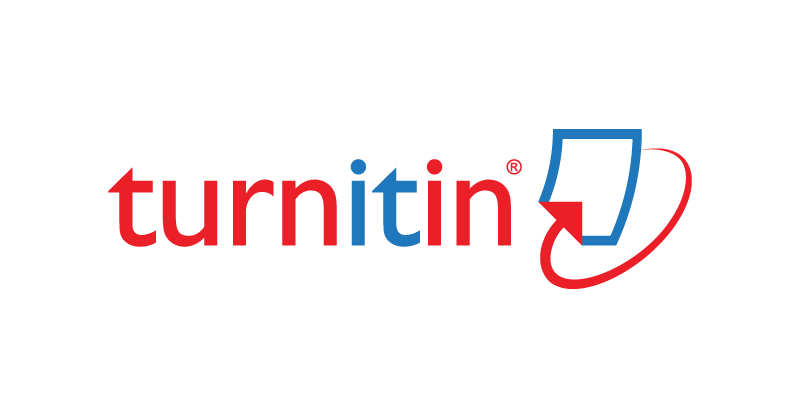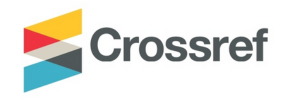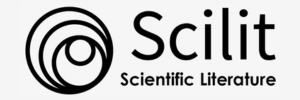Evaluation Of Distance Learning Program For Elementary School Students In Banyudono Village, Boyolali Post Pandemic
DOI:
https://doi.org/10.63605/ln.v2i2.66Kata Kunci:
Distance learning, Evaluation, Smartphone, WhatsappAbstrak
Background: During the pandemic, the world of education has undergone significant changes, especially in the educational strategies implemented. One of the strategies in the world of education is the existence of a distance learning model. Purpose: This study aims to evaluate the implementation of distance learning at the beginning of the planning process, implementation, learning outcomes and obstacles faced. Design/methods/approach: The data sources in this quantitative research are teachers and principals totaling fourteen people. The technique of selecting research subjects used purposive sampling. sampling . Data collection using interviews and documentation with interview guide instruments. Data analysis techniques in this study are data reduction, data presentation, and drawing conclusions . Findings: Interview data and documentation analyzed descriptively show that the evaluation of the implementation of distance learning (PJJ) has generally met the standard criteria set by the government. However, the evaluation of learning outcome measurements is still less effective due to the obstacles faced in measuring students' actual abilities. One of the obstacles faced in implementing this distance learning is that student learning outcomes are not purely what students do. Research implications/limitations: Some students get results because of the help of parents or other parties in working on the questions, another deficiency faced in this study is that the learning media used in the form of online applications cannot be an ideal learning tool like face-to-face learning. Originality/value: It is hoped that other research that will be conducted in the future will be able to add more complete knowledge related to similar research themes.
Unduhan
Referensi
Adi, H. C., Zulvia, M., & Asyha, A. F. (2019). Studi Kompetensi Guru Dan Linieritas Pendidikan Dalam Peningkatan Prestasi Belajar Siswa Di Sd Negeri 1 Gunung Tiga Dan Sd Negeri 1 Ngarip Lampung. Al-Tadzkiyyah: Jurnal Pendidikan Islam, 10(2), 245–255.
Ahmad, S., Zulfikar, T., & Hardiana, F. (2020). The Use Of Social Media Whatsapp Among English Education Students For Solving Thesis Writing Problems. Humanities & Social Sciences Reviews, 8(3), 447–455. Https://Doi.Org/10.18510/Hssr.2020.8348
Ariessanti, H. D., & Aini, Q. (2017). Penerapan Idu Ilearning Plus Berbasis Gamification Sebagai Media Pembelajaran Jarak Jauh Pada Perguruan Tinggi. Technomedia Journal, 1(2), 37–49.
Arifin, Z. (2011). Evaluasi Pembelajaran: Teknik Dan Prosedur. Bandung: Remaja Rosdakarya.
Atang, H. A., & Minggele, D. (2020). Cakrawala Pemikiran Kahmi Untuk Ntt. Penerbit Lakeisha.
Febriani, S. R., Safutri, J. T., Yusnawati, Y., & Anasrudin, A. (2020). Development Of Literacy In Islamic Education In The Covid-19 Era For Elementary School. Khalifa: Journal Of Islamic Education, 4(2), 79–96.
Harjali, H. (2019). Building Constructivist Learning Environment At Senior High School In Indonesia. The Qualitative Report, 24(9), 2197–2214.
Huda, Y., & Faiza, D. (2019). Desain Sistem Pembelajaran Jarak Jauh Berbasis Smart Classroom Menggunakan Layanan Live Video Webcasting. Jurnal Teknologi Informasi Dan Pendidikan, 12(1), 25–32.
Husna, F. N., Kistoro, H. C. A., Sari, P. R., & Intan, S. (2023). Implementation Of Learning Management System (Lms) Learning Media At Muhammadiyah 2 Sma Yogyakarta. Linguanusa : Social Humanities, Education And Linguistic, 1(1), 66–78.
Indriani, T. M., Fathoni, T., & Riyana, C. (2018). Implementasi Blended Learning Dalam Program Pendidikan Jarak Jauh Pada Jenjang Pendidikan Menengah Kejuruan. Educational Technologia, 2(2), 129–139.
Kemendikbud. (2014). Peraturan Menteri Pendidikan Dan Kebudayaan Republik Indonesia. In Kemdikbud (Vol. 119, Pp. 1–12).
Kesuma, A. T., Harun, Z., Putranta, H., & Kistoro, H. C. A. (2020). Evaluation Of The Self-Regulated Learning Model In High Schools: A Systematic Literature Review. Universal Journal Of Educational Research, 8(10), 4792–4806.
Kurdi, M. S. (2018). Evaluasi Implementasi Desain Pendidikan Karakter Berbasis Pendekatan Humanistik. Elementary: Jurnal Ilmiah Pendidikan Dasar, 4(2), 125–138.
Marzuki, S., Kistoro, H. C. A., & Ru’iya, S. (2021). Kedisplinan Sholat Siswa Di Smk Muhammadiyah 2 Sleman Ditinjau Dari Pengaruh Penggunaan Gadget. Tarbiyatuna: Kajian Pendidikan Islam, 5(1), 27–39.
Minggele, D. (2020). Teacher Vs Corona. Azkiya Publishing.
Moelong, L. J. (2013). Metodologi Penelitian Kualitaif, Bandung: Pt. Remajarosdakarya, Cet, 31.
Mulyatiningsih, E., & Nuryanto, A. (2014). Metode Penelitian Terapan Bidang Pendidikan.
Paat, Y. (2020). Cegah Penyebaran Virus Corona, Sekolah Di Jakarta Libur 2 Pekan. Berita Satu. Https://Amp.Beritasatu.Com/Megapolitan/608693-Cegah-Penyebaran-Virus-Corona-Sekolah-Di-Jakarta-Libur-2-Pekan
Purnama, M. R. P., & Kistoro, H. C. A. (2023). Implementation Of Islamic Character Education In Mi Ma’arif Blendangan During The Covid-19 Pandemic. Linguanusa : Social Humanities, Education And Linguistic, 1(3), 18–29.
Putri, M. E., Kistoro, H. C. A., Muhliana, S. I., & Sari, P. R. (2023). Moral Learning Strategies At Madrasah Mu’allimaat Muhammadiyah Yogyakarta During The Covid-19 Pandemic. Idaarah: Jurnal Manajemen Pendidikan, 7(2), 234–251. Https://Doi.Org/10.24252/Idaarah.V7i2.36132
Radino, R., Kistoro, H. C. A., Munajat, N., Putranta, Hi., Kesuma Ameliasari, T., & Lumaurrridlo, L. (2021). Distance Learning Strategies Using Technology For Elementary School Students In Yogyakarta During The Covid-19 Pandemic. Journal Of Theoretical And Applied Information Technology, 99(9).
Setiawan, A. R. (2020). Scientific Literacy Worksheets For Distance Learning In The Topic Of Coronavirus 2019 (Covid-19). Edarxiv. Doi: Https://Doi. Org/10.35542/Osf. Io/Swjmk.
Sobron, A. N., Bayu, B., Rani, R., & Meidawati, M. (2019). Pengaruh Daring Learning Terhadap Hasil Belajar Ipa Siswa Sekolah Dasar. Seminar Nasional Sains & Entrepreneurship, 1(1).
Stufflebeam, D. L. (2000). The Cipp Model For Evaluation. In Evaluation Models (Pp. 279–317). Springer.
Uno, H. B., & Koni, S. (2019). Assessment Pembelajaran.
Utomo, S. A. W., Kistoro, H. C. A., & Lumaurridlo, L. (2021). Analysis Of Islamic Education Management On The Professionalism And Leadership Aspects Of Paud Schools. Ijier: International Journal Of Islamic Education Research, 1(1), 1–7.
Widiasih, W., Permanasari, A., & ... (2018). The Social Media Whatsapp To Support Physics Learning Problem Solving On Online Tutorial Activities In Distance Education. … Science Education …, 3, 269–275.
Unduhan
Diterbitkan
Cara Mengutip
Terbitan
Bagian
Lisensi
Hak Cipta (c) 2024 Darmanto Minggele

Artikel ini berlisensi Creative Commons Attribution-NonCommercial 4.0 International License.





















